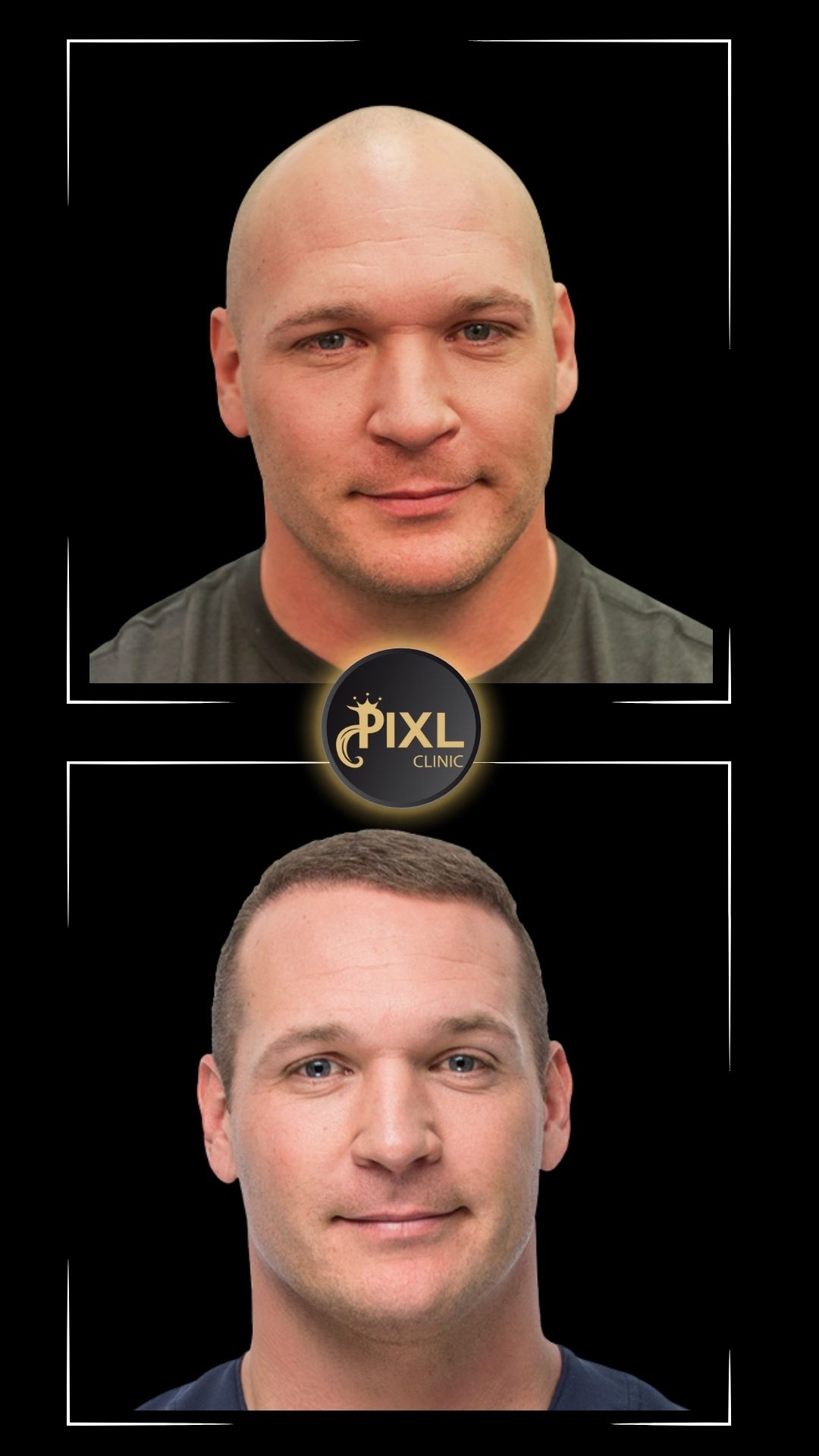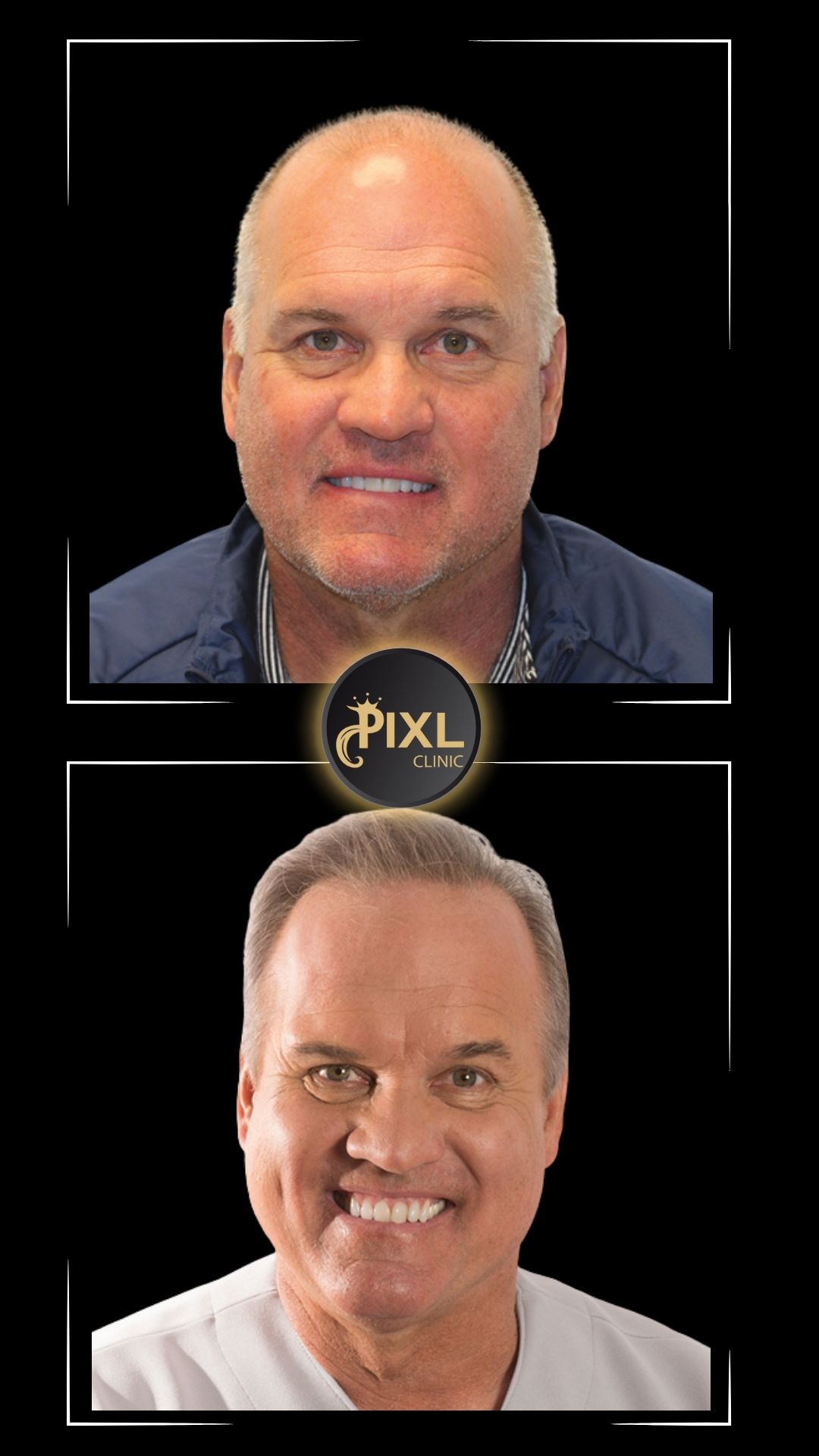The Best Shampoo to Use After a Hair Transplant: A Complete Guide
A hair transplant is a significant investment in your appearance and confidence. Proper post-operative care, including the right shampoo, plays a critical role in ensuring the success of the procedure and promoting healthy hair growth. In this blog, we’ll explore the best types of shampoo to use after a hair transplant, why they’re essential, and how to properly care for your hair during recovery.
Why Does Shampoo Choice Matter After a Hair Transplant?
The recipient and donor areas of your scalp are highly sensitive after the procedure. Using the wrong shampoo can:
- Irritate the scalp.
- Disrupt the healing process.
- Damage newly transplanted grafts.
Choosing a gentle, surgeon-recommended shampoo helps:
- Keep the Scalp Clean: Prevents infections by removing dirt and debris.
- Promote Healing: Soothes the scalp and minimizes irritation.
- Protect Grafts: Ensures the transplanted follicles remain secure during the early stages.

Characteristics of the Best Shampoo After a Hair Transplant
When selecting a shampoo, look for these qualities:
- Mild and Gentle: Avoid shampoos with harsh chemicals or strong fragrances.
- pH-Balanced: A pH-balanced formula prevents dryness and irritation.
- Free of Sulfates and Parabens: These additives can strip natural oils and cause inflammation.
- Contains Natural Ingredients: Look for shampoos with aloe vera, chamomile, or tea tree oil for their soothing properties.
Top Shampoo Recommendations for Post-Hair Transplant Care
Here are some commonly recommended shampoos after a hair transplant:
Hypoallergenic Shampoos
Designed for sensitive skin, these shampoos are free from harsh chemicals and allergens, making them ideal for post-transplant care.
Baby Shampoo
Mild and gentle, baby shampoos are often recommended for the first few weeks as they’re less likely to irritate the scalp.
Medicated Shampoos (If Prescribed)
Your surgeon may recommend a medicated shampoo with anti-inflammatory or antifungal properties to address specific issues like swelling or dandruff.
Aloe Vera or Tea Tree Oil Shampoos
Natural ingredients like aloe vera and tea tree oil can help soothe the scalp, reduce itching, and promote healing.
Shampoo with Biotin
Biotin-enriched shampoos may help strengthen existing hair and encourage healthy growth of transplanted follicles.
How to Use Shampoo After a Hair Transplant
Using shampoo correctly is just as important as choosing the right one. Follow these steps:
Wait Before Washing
- Avoid washing your hair for the first 2-3 days after the procedure unless instructed otherwise by your surgeon.
Be Gentle
- Use lukewarm water and avoid rubbing or scrubbing the scalp.
- Apply shampoo by diluting it with water and gently pouring it over your scalp.
Pat Dry
- Avoid vigorous towel drying. Instead, pat your hair dry with a soft, clean towel.
Avoid Direct Water Pressure
- Use a cup or your hands to pour water over your scalp instead of standing directly under a showerhead.
What to Avoid When Choosing a Shampoo
To protect your transplanted hair, avoid shampoos that:
- Contain sulfates (SLS) or parabens.
- Have strong fragrances or dyes.
- Include alcohol, which can dry out the scalp.
- Are designed for deep cleansing or dandruff unless specifically recommended.
When Can You Return to Normal Hair Care?
By 2-4 weeks, most people can transition back to their regular shampoo and hair care routine, provided the scalp has healed and there are no complications. However, many patients continue to use gentle, nourishing shampoos to maintain scalp health and support ongoing hair growth.
The right shampoo after a hair transplant can make all the difference in your recovery and results. Stick to mild, gentle, and pH-balanced formulas, and always follow your surgeon’s aftercare instructions. By taking these steps, you’ll protect your investment and enjoy healthy, natural-looking hair for years to come.
When in doubt, consult your surgeon to ensure your shampoo choice aligns with your post-operative care plan.
FAQ: Best Shampoo to Use After a Hair Transplant
Why is choosing the right shampoo important after a hair transplant?
The scalp is highly sensitive after a hair transplant, and using the wrong shampoo can:
- Irritate the healing areas.
- Disrupt the transplanted grafts.
- Slow down the healing process.
A gentle, surgeon-recommended shampoo ensures cleanliness, promotes healing, and protects the transplanted follicles.
What type of shampoo should I use?
Choose a shampoo that is:
- Mild and Gentle: Free of harsh chemicals.
- pH-Balanced: Prevents dryness and irritation.
- Sulfate-Free and Paraben-Free: Reduces inflammation and dryness.
- Natural or Hypoallergenic: Contains soothing ingredients like aloe vera or chamomile.
Can I use baby shampoo after a hair transplant?
Yes, baby shampoo is a popular choice for the first few weeks. It is mild, gentle, and unlikely to irritate the scalp.
When can I start washing my hair after a hair transplant?
Most surgeons recommend waiting 2-3 days before washing your hair. Always follow your surgeon’s specific instructions.
How do I wash my hair after a hair transplant?
- Use lukewarm water.
- Dilute the shampoo in water before applying it.
- Gently pour the mixture over your scalp without rubbing.
- Pat dry with a soft towel—do not rub or scratch the scalp.
Can I use medicated shampoo after a hair transplant?
Your surgeon may recommend a medicated shampoo for specific concerns like:
- Anti-inflammatory properties: To reduce swelling.
- Antifungal action: To prevent dandruff or infections. Always use medicated shampoos only if prescribed by your doctor.
What ingredients should I avoid in shampoos post-transplant?
Avoid shampoos with:
- Sulfates (SLS/SLES): Can strip natural oils and irritate the scalp.
- Parabens: May disrupt the healing process.
- Alcohol: Dries out the scalp.
- Strong Fragrances or Dyes: Can cause irritation or allergic reactions.
Are there shampoos specifically designed for hair transplant recovery?
Yes, some brands create shampoos specifically for post-hair transplant care. These shampoos are formulated to be gentle, nourishing, and supportive of healing and growth.
When can I return to using regular shampoo?
Most people can transition back to their regular shampoo by 2-4 weeks post-transplant, once the scalp has fully healed. However, many prefer to continue using gentle or specialized shampoos to maintain hair health.
What are some recommended shampoo ingredients for post-transplant care?
Look for shampoos with:
- Aloe Vera: Soothes and hydrates the scalp.
- Tea Tree Oil: Helps prevent infections.
- Biotin: Strengthens hair and supports growth.
- Panthenol (Vitamin B5): Moisturizes and nourishes the scalp.
Can washing my hair dislodge transplanted grafts?
If you follow your surgeon’s instructions, washing your hair gently with a recommended shampoo will not dislodge grafts. Avoid rubbing or using direct water pressure during the first few weeks.
What should I do if my scalp feels itchy or irritated after washing?
Itchiness is normal during the healing process. To minimize irritation:
- Use a soothing, hypoallergenic shampoo.
- Avoid scratching the scalp.
- Consult your surgeon if the itching is severe or persists.
How often should I wash my hair after a hair transplant?
In the initial days, your surgeon may recommend washing your hair every 2-3 days. As the scalp heals, you can gradually return to your normal washing routine.
Will using the wrong shampoo affect my results?
Yes, using harsh shampoos can irritate the scalp, slow healing, and potentially damage transplanted grafts. Stick to mild, surgeon-approved shampoos during recovery.
Can I use conditioner after a hair transplant?
Avoid conditioner in the first few weeks unless specifically recommended by your surgeon. After the scalp has healed, you can reintroduce a gentle conditioner to your routine.

















